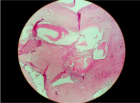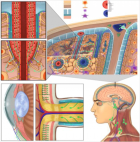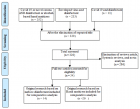Table of Contents
Quality of Life (QoL) among Pakistani Women with Breast Cancer Undergoing Chemotherapy
Published on: 17th August, 2023
Background: Breast Cancer is the most common cancer in women and the quality of life of women with breast cancer is a significant healthcare issue specifically in developing and underdeveloped countries.Globally quality of Life (QoL) has become an important indicator to measure the outcomes of medical and nursing interventions. The QoL studies have an imperative role in healthcare especially in chronic disease as the latest diagnostic and treatment modalities have increased the survival rates and duration of cancer patients. Similarly, breast cancer itself and its treatment with Chemotherapy, in particular, has many complications and negative impacts on the QoL of cancer women. Aim: The aim of this study was to assess the QoL of Pakistani women with Breast Cancer patients undergoing chemotherapy and the relationship of QoL with socio-demographic variables.Methodology: A descriptive cross-sectional correlational study was conducted on 110 female breast cancer patients undergoing chemotherapy. FACIT-B questionnaire was used to assess the quality of life of these patients. Statistical analysis was done by using SPSS version 20 using the Pearson correlation coefficient, Chi-square test, and Spearman’s rho correlation coefficient. Results: The mean age of participants was (mean ± SD) 42.98 ± 8.98. A significant negative correlation was observed with age and QoL, r = -0.218, p - value 0.022. No significant association was observed between QoL and marital status; education status; and socioeconomic status.Conclusion: The majority of breast cancer women 59(53.6%) had moderate QoL and Chemotherapy also showed moderate impacts on different domains: physical, functional emotional, social, and sexual well-being of the women.
Research Progress of BTG2 as a Tumor Prognostic Factor
Published on: 21st June, 2023
Cancer is a major public health issue and the main cause of death worldwide. Despite improvements in diagnostic techniques and treatment methods, cancer still seriously affects the quality of life of patients, which cause serious social and economic burdens. Therefore, there is an urgent need to identify potential biomarkers to improve diagnosis, treatment, and prognosis of cancer. BTG2 is a cell proliferation suppressor gene that serves as a tumor suppressor gene in the occurrence and development of various tumors. Many studies have shown that BTG2 can serve as a prognostic marker in various tumors. So, fully tap the potentials of BTG2 as a tumor prognostic marker will bring more possibilities to provide a new method or new diagnostic and therapeutic tool for treating cancer.
Anticancer Activity of Genistin: A Short Review
Published on: 16th June, 2023
Genistein is an isoflavone glycoside that provides a variety of health advantages. The possibility of cancer chemopreventive drugs derived from natural sources, such as polyphenols, may constitute a novel, cost-effective strategy to reduce the rising burden of cancer throughout the world. A soy-rich diet was linked to cancer prevention in several epidemiological studies, which was explained by the presence of the phenolic component genistein in soy-based foods. Inhibiting metastasis and changing apoptosis, the cell cycle, and angiogenesis are the key ways that genistin fights various cancers. It acts as a chemotherapeutic agent against different types of cancer, mainly by altering apoptosis, the cell cycle, and angiogenesis and inhibiting metastasis. This study critically evaluates the literature that is currently available on the therapeutic benefits of genistin for various cancers.
The prognostic value of p53 and WT1 expression in cancer: new molecular insights and epigenetics explanations lead to a new medical hypothesis
Published on: 1st June, 2023
This is a literature review study focusing on the expression of p53 and WT1. Both the p53 and WT1 proteins are tumor suppressors, which means that they play a role in preventing the progression into cancerous ones. If these proteins are altered or deleted, they lose the ability to carry out their role, which might result in the development of cancer. The primary objectives of this study were to review the literature regarding the expression of both p53 and WT1 and to investigate their prognostic significance; and to discuss our new hypothesis regarding the ratios of expression of WT1/p53, as well as our model regarding acute myeloid leukemia. In brief, the objectives were to make the focus in the suggested hypothesis as well as collecting the supportive literature. According to the findings of the current research, the level of expression of WT1 and p53 can indicate either a favorable or unfavorable prognosis for cancer patients. Further, we demonstrated that the expression, not just as a quality variable but also as a quantity variable, may have a more substantial explanation in the progression of tumors than we had previously thought. According to the theory that was derived from this research, if the expression of WT1/p53 (the expression is given as a ratio) is somewhere around 4, then p53 acts as though it were wild type and offers protection against tumors. In order to verify this idea, we need to do additional study.
Exceptional cancer responders: A zone-to-go
Published on: 4th January, 2023
Cancer is a disease that implies several different genotypic and phenotypic traits in its whole process of development: tumorigenesis.

HSPI: We're glad you're here. Please click "create a new Query" if you are a new visitor to our website and need further information from us.
If you are already a member of our network and need to keep track of any developments regarding a question you have already submitted, click "take me to my Query."

























































































































































